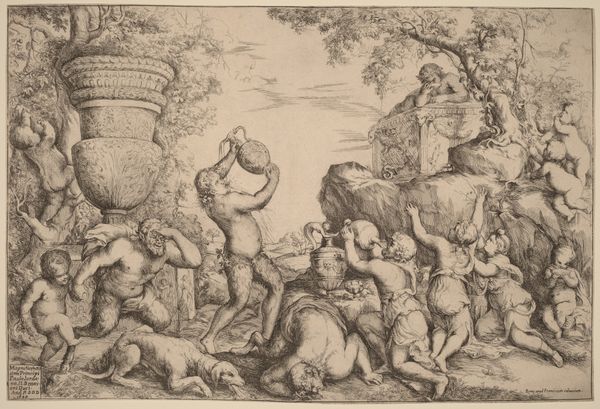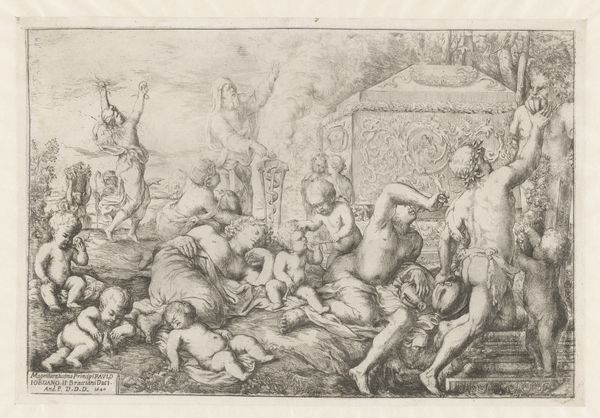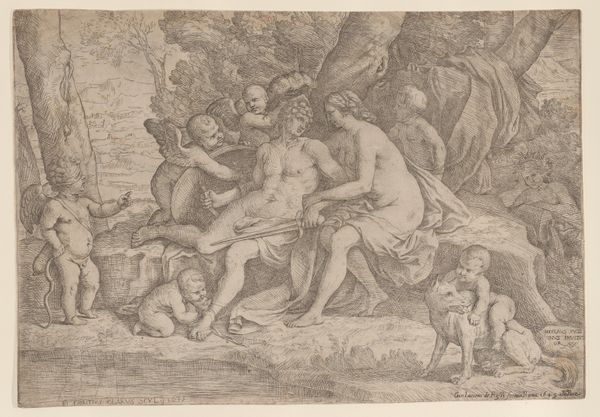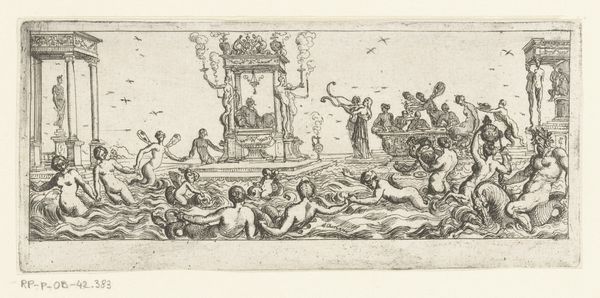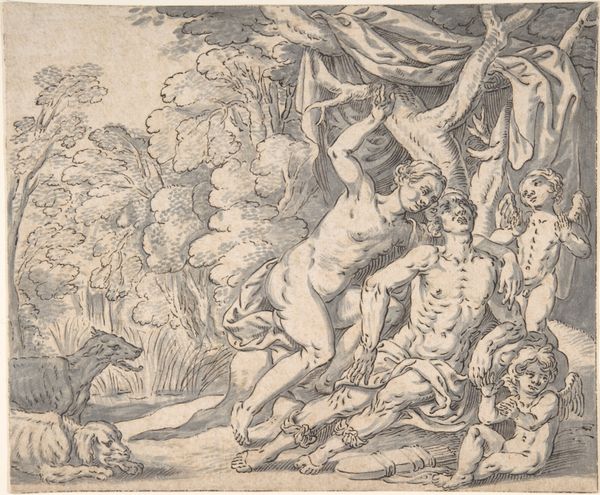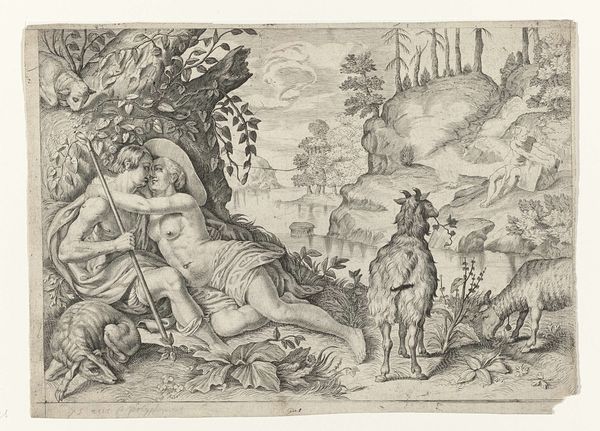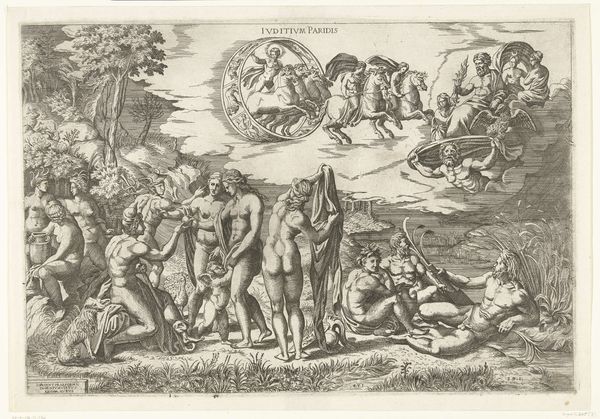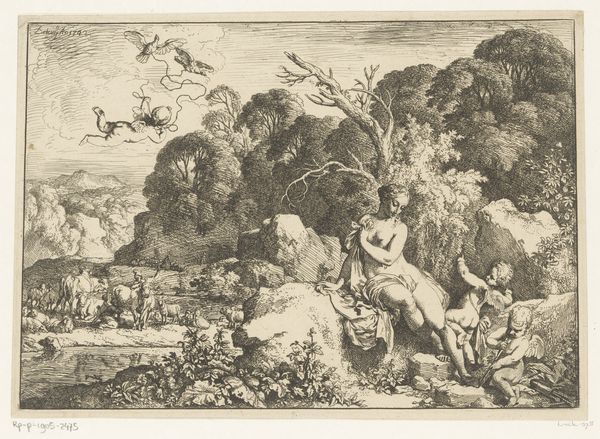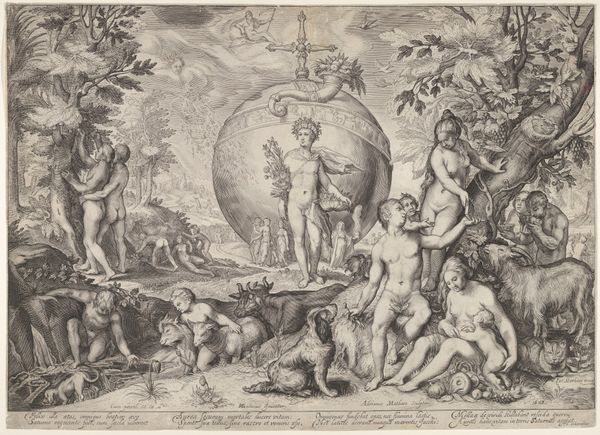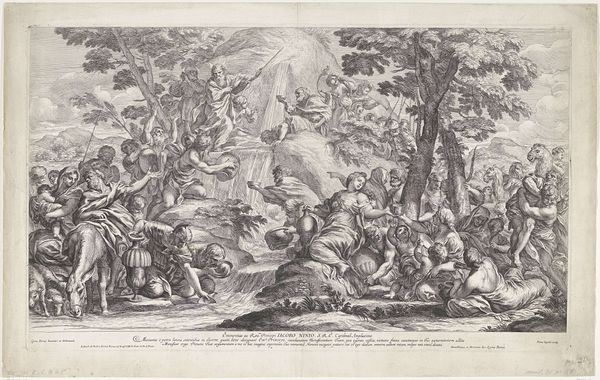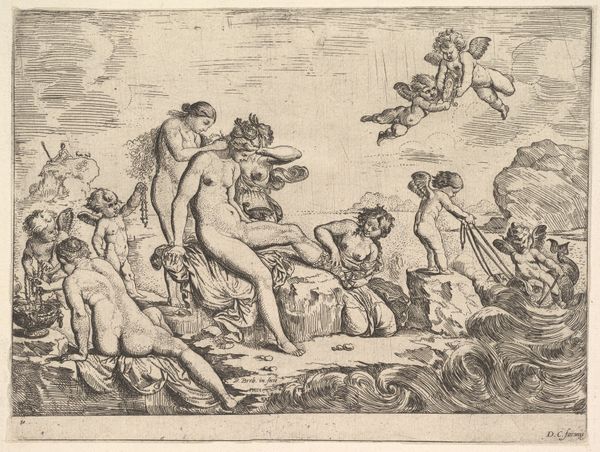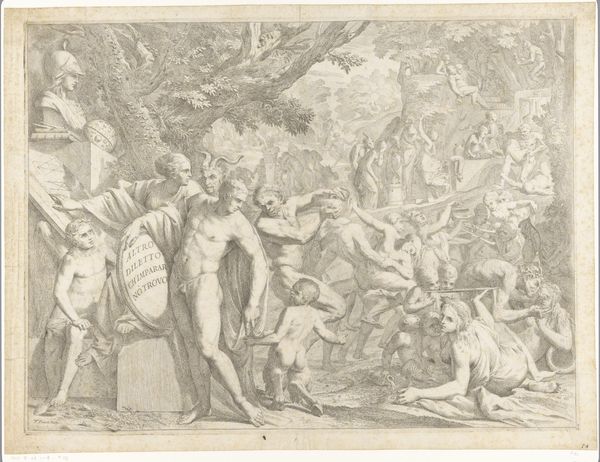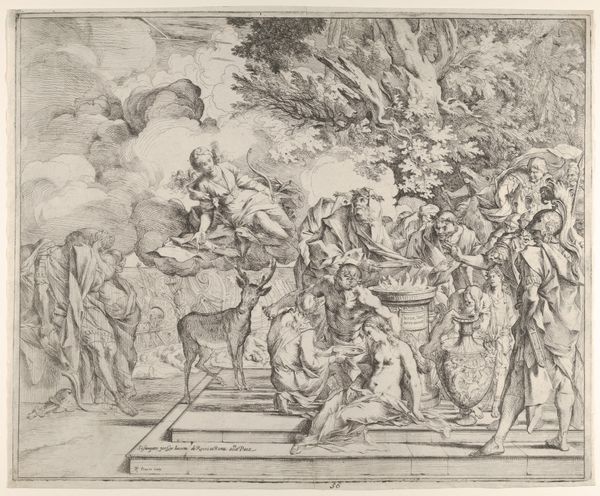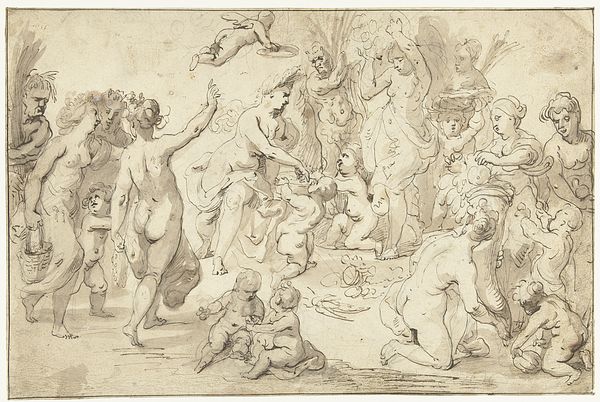
drawing, ink, pen
#
drawing
#
ink drawing
#
allegory
#
baroque
#
pen drawing
#
landscape
#
figuration
#
ink
#
pen
#
genre-painting
Dimensions: height 261 mm, width 398 mm
Copyright: Rijks Museum: Open Domain
Editor: This is Giovanni Andrea Podesta’s “Bacchanal with Silenus,” a pen and ink drawing from 1640. It feels incredibly busy; there’s so much happening in the composition. How do you interpret this work? Curator: Focusing solely on its visual construction, we can observe how Podestà uses line weight to create depth. Notice the foreground figures rendered with bold, decisive strokes. As the eye moves towards the background, the lines become finer and more intricate, almost dissolving into the paper. This not only establishes spatial recession but also draws attention to the textural contrasts within the work. Editor: I see that. The use of hatching and cross-hatching is also quite striking, especially on the figures' bodies. Curator: Precisely. The density of these marks models the forms, creating a sense of volume and physicality. Pay attention to how the light seems to cascade across the figures, highlighting their musculature and animating the scene. And how do you perceive the balance achieved through the distribution of figures and forms across the picture plane? Editor: It seems like a deliberate contrast is created by the clustered activity on the right versus the somewhat solitary urn on the left, adding tension to the scene. Curator: Indeed. The density creates its own form that plays against the negative space. We appreciate its semiotic interplay regardless of iconographic interpretation. This piece beautifully exhibits the intrinsic ability of pen and ink to generate movement and vitality. Editor: That’s given me a whole new appreciation for the complexity of a seemingly simple ink drawing! Curator: Absolutely, by examining formal qualities we unlock deeper dimensions and visual intricacies within art.
Comments
No comments
Be the first to comment and join the conversation on the ultimate creative platform.
